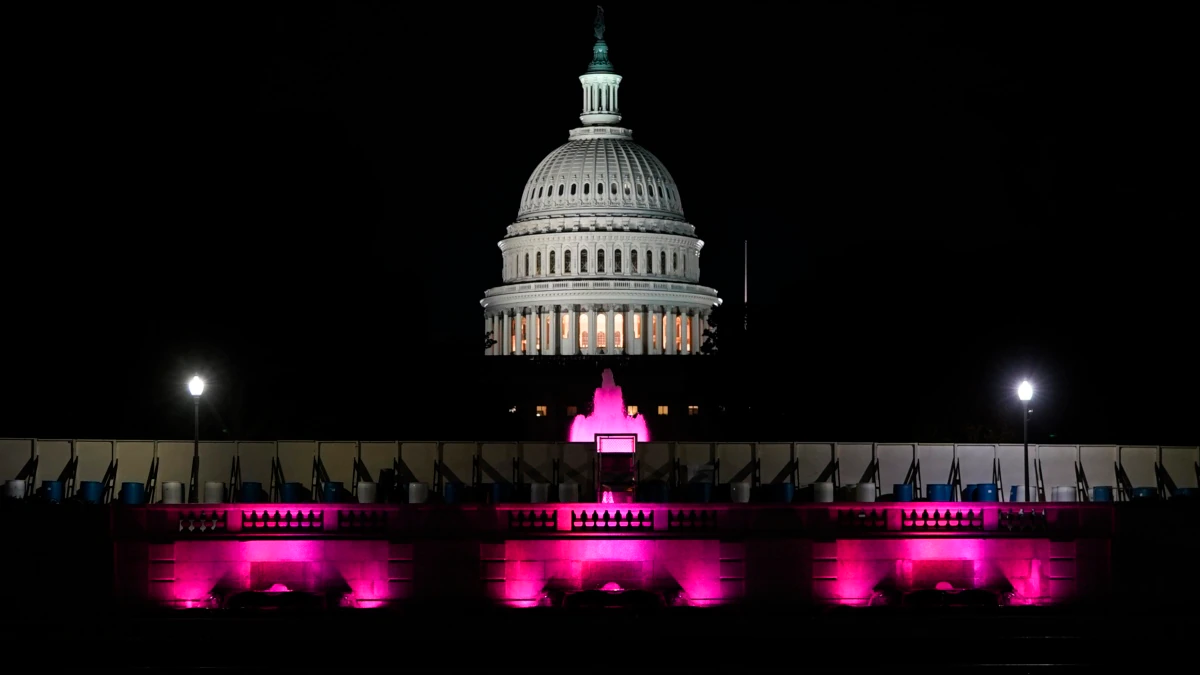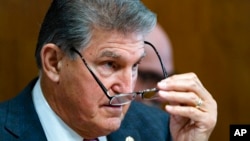Democrats in the U.S. Congress continued to be mired in negotiations on President Joe Biden’s major social safety net and climate control spending plan, particularly which programs to keep and which ones to remove as well as the means to pay for them.
The president held talks at the White House Tuesday night with Senators Joe Manchin of West Virginia and Kyrsten Sinema of Arizona, two moderate lawmakers in Biden’s own Democratic party who have staunchly opposed much of his original $3.5 trillion Build Back Better plan that would provide the biggest expansion of government benefits to American families in five decades.
Senate Democrats led by Elizabeth Warren of Massachusetts unveiled a plan earlier Tuesday that would impose a new minimum tax on corporations, along with a new “billionaires tax” that would impose levies on individuals who own at least $1 billion in assets, or who receive $100 million in earnings for three consecutive years.
The plan was conceived after Sinema came out against a much simpler plan to raise conventional tax rates on wealthy Americans and corporations. Sinema announced her support for the new minimum corporate tax as “a common-sense step,” but some House Democrats have raised concerns about the legality of the billionaires’ tax.
For his part, Manchin has come out in opposition of an expansion of Medicare and Medicaid, the government’s health care programs for elderly and low-income Americans, respectively, as well as providing 12 weeks of paid family leave and making the new child tax credit permanent, criticizing them as either costly or unnecessary new government “entitlements.”
Manchin is also opposed to a proposed $150 billion clean electricity program that would replace the nation’s coal and gas-fired power plants with wind, solar and nuclear energy. The program is a pillar of the president’s strategy to combat climate change, but Manchin represents one of the largest coal-producing states in the nation. His opposition has left the administration scrambling to create an alternative strategy, such as grants and loans to help utilities switch to renewable energy.
Biden has expressed hope that he can reach agreement this week on what he has acknowledged will be a more limited spending plan of about $2 trillion or less, with some provisions, such as two tuition-free years of community college, jettisoned from the final package.
Representative Ro Khanna of California, a key member of the House Progressive Caucus, told the U.S. cable news television program “Fox News Sunday” that the president recently told a group of lawmakers that he needs passage of both the social safety net bill and a separate $1.2 trillion measure that funds key upgrades to the nation’s physical infrastructure before he travels to Glascow, Scotland later this week for the United Nations-sponsored COP26 climate conference.
With the 100-member Senate equally split between Republicans and Democrats, the policy agreement and votes of Manchin and Sinema are key to passage of the legislation, along with the tie-breaking vote of Vice President Kamala Harris. Currently, no Republicans support the legislation.
The infrastructure spending plan drew the support of 19 Republicans in the Senate, along with that of all 50 Democrats, but progressive House Democrats blocked its passage there until agreement could be reached on the social safety net legislation.
White House press secretary Jen Psaki acknowledged the high stakes involved in the difficult negotiations Tuesday. “The alternative to what is being negotiated is not the original package — it is nothing,” she told reporters.
Some information for this report came from the Associated Press and Reuters.














































